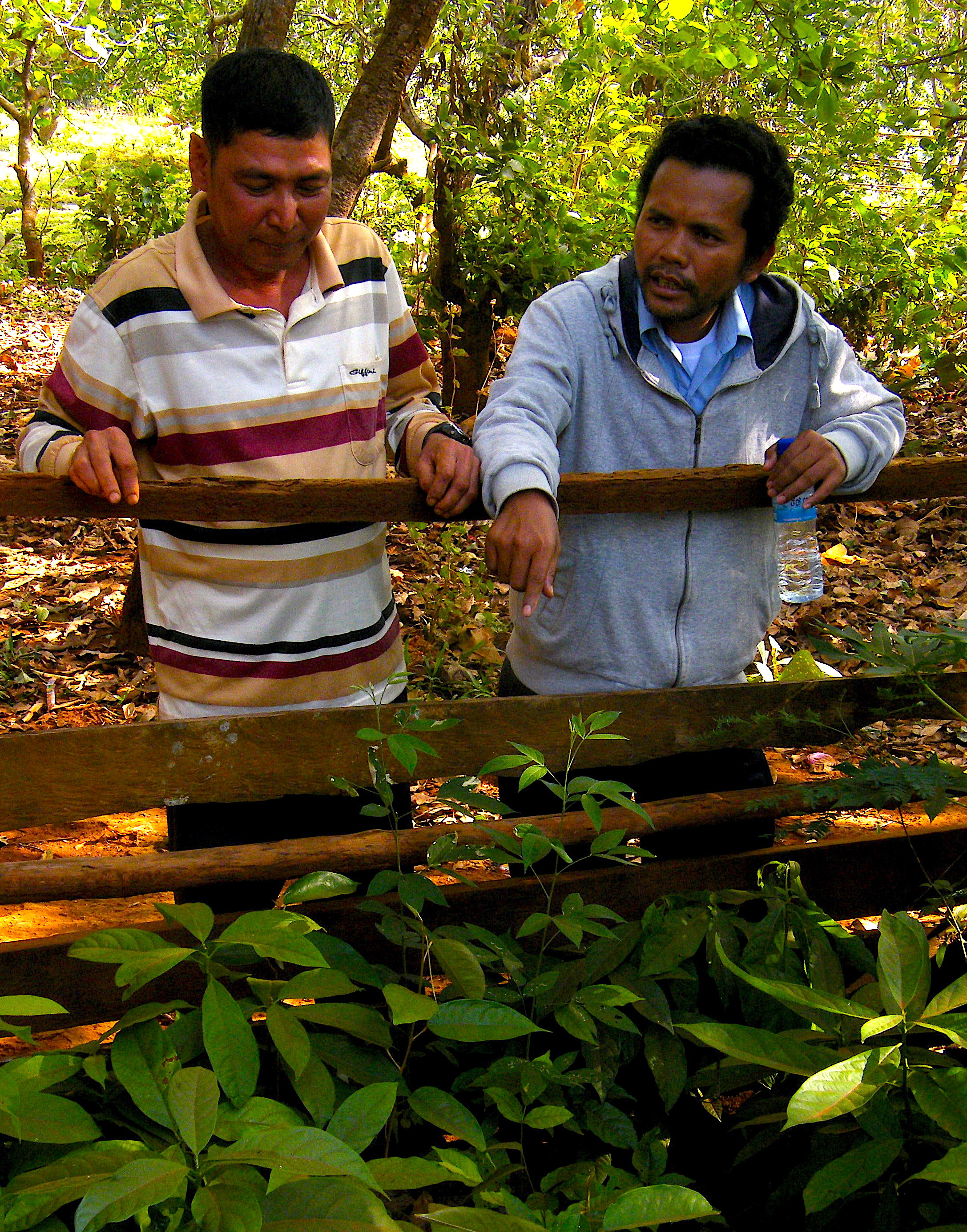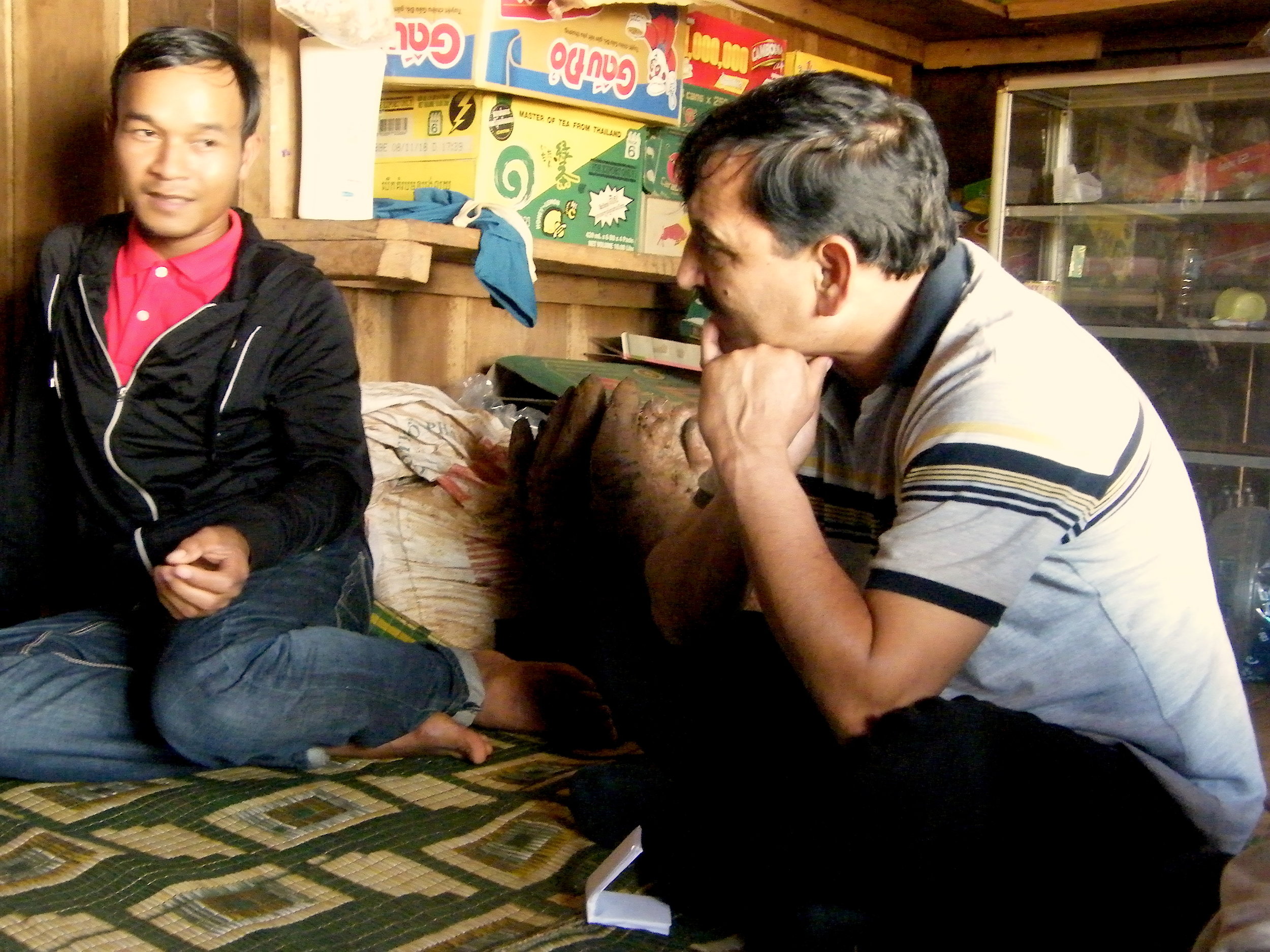What is development?
Millions of dollars are spent every year on development, the United Nations has a dedicated development agency, universities offer it as a subject … but there is no consensus on what it actually is. I have an MPhil but that does not mean I can define it. When facilitating workshops I often ask "What is Development?" and always get fascinating answers.
Anders and Seena redefining development- with Lego.
Anders, a participant in an Outcome Mapping course I was running last week, offered this:
"Militarily when a force is surrounded by the enemy, enclosed and sealed in – enveloped if you like - development is finding a way out. To be constrained is to be enveloped. To break the constraints is to develop."
Development as opening envelopes? Love it! I’ve been playing around with the concept ever since, especially trying to define what we humans make our envelopes out of.
At all times every one of us is constrained in many ways- our bodies, the landscape around us, financial resources, physical limitations but solutions to physiological, geographic physical or financial constraints are medicine, engineering, science or economics but not necessarily development. It's when a group of humans see their envelopes are constructed by themselves and tear them open- that development emerges. Developing new seeds is science. An indigenous man in a remote corner of Cambodia breaking tradition to plant a new variety of corn in a different way is development. Science led Salk to a polio vaccine. India finding a way to use a tiny proportion of its wealth to get that vaccine to all its children, including the poorest, is development. In a country with money for nuclear weapons every child crippled by polio is a choice. Making a different choice and implementing it is development. Not just polio but for any reality that is socially constructed not objective, development is reconstructing reality.
Creating new seeds was not development. Planting them is.
Defining women as unfit to vote was a social construct. Only a century ago that realization spread from a few committed New Zealand activists to wider acceptance. First voting laws were changed in New Zealand then other countries followed domino-like. That was development. Even more recently South Africa dismantled an evil social construct- apartheid. Climate change, one of today's biggest challenges, is also a social construct. What????!!! Sure it is expressed in the atmosphere but CO2 emissions come from humanity choosing an economy underwritten by fossil fuels. That is not an objective reality. It's we choose to structure our economy on less carbon that will be development. Obscene global inequality which allows 8 people the same wealth as the poorest half of humanity is an expression of the global political and economic system we have chosen.We could deliver global wealth to the planet's poorest people, just like India delivered polio vaccines to its poorest kids. Choosing to do so would be development. Today rainforests and other natural resources disappear while humans play military games like Nero played his fiddle. We've folded ourselves up around billions of dollars of war machines and put ourselves in an envelope. We could tear it open, and divert military resources to environmental issues but we choose not to. Yet
Those are global examples but the thinking works on smaller scales. Mentally unwell people who are untreated in India and their desperate carers with no support results from choices Indian society makes. A project I work with is trying to re-order attitudes behavior and relationship, redirect resources to this excluded group. It fits this definition fo development. The treat of extinction snow leopards face in the Himalayas is not a biological reality. It is a biological expression of human choices. If humans live in other ways snow leopards will survive. A snow leopard conservation project I worked with is trying to redefine that envelope. Development as opening envelopes works for all the projects I'm involved in.
That’s it! On whatever scale we choose, development is tearing open socially constructed envelopes. This resonates with Outcome Mapping as a development philosophy. Outcomes in OM are changes in thinking, behaviour, relationships or policy. We make the envelopes that restrict us out of behaviours, attitudes, relationships and policies. Outcomes tear them open. Yes!
Thanks Anders.
Harvesting Outcomes in rural Cambodia last week.... looking for envelopes being opened.



